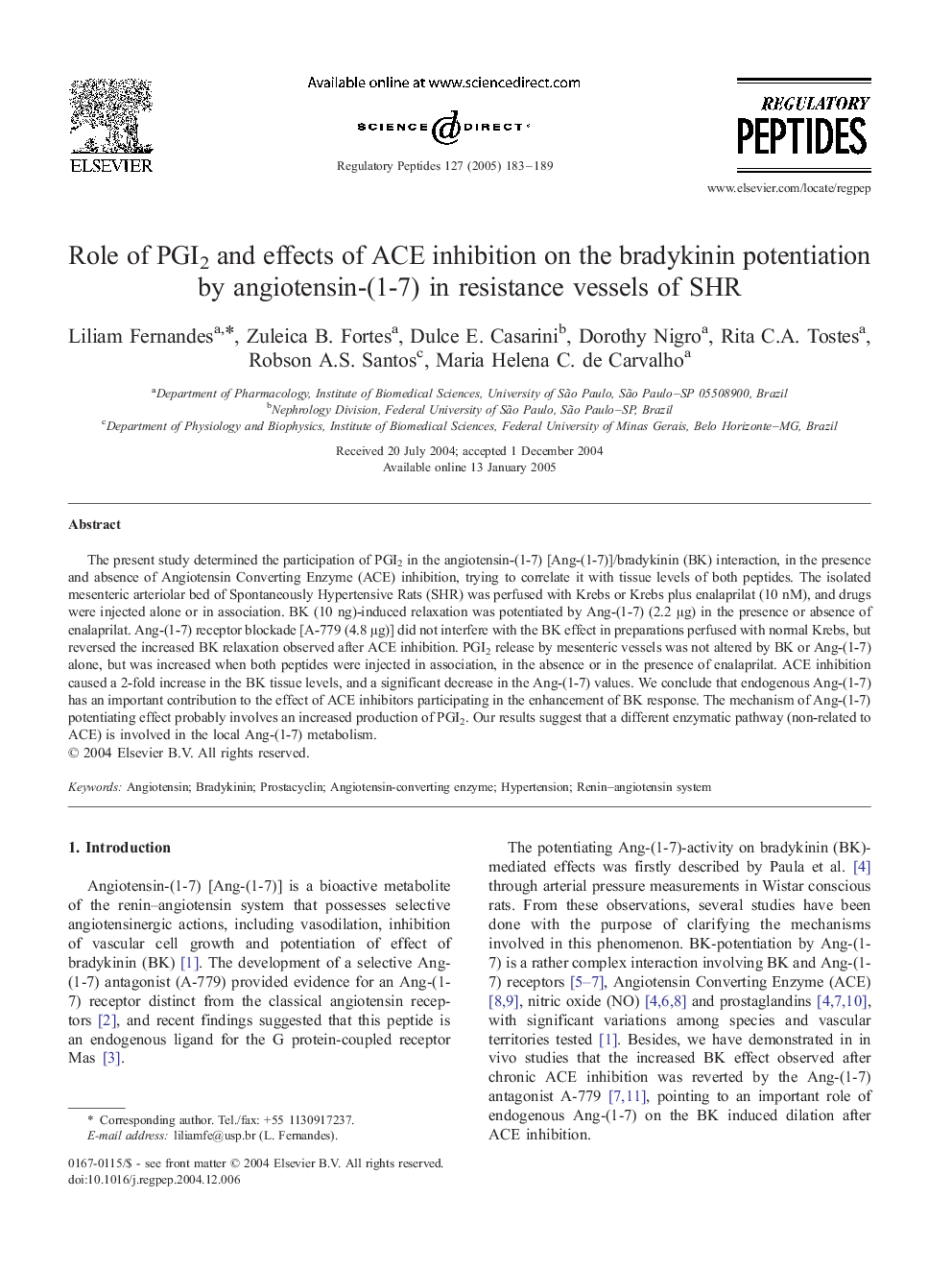| Article ID | Journal | Published Year | Pages | File Type |
|---|---|---|---|---|
| 9894456 | Regulatory Peptides | 2005 | 7 Pages |
Abstract
The present study determined the participation of PGI2 in the angiotensin-(1-7) [Ang-(1-7)]/bradykinin (BK) interaction, in the presence and absence of Angiotensin Converting Enzyme (ACE) inhibition, trying to correlate it with tissue levels of both peptides. The isolated mesenteric arteriolar bed of Spontaneously Hypertensive Rats (SHR) was perfused with Krebs or Krebs plus enalaprilat (10 nM), and drugs were injected alone or in association. BK (10 ng)-induced relaxation was potentiated by Ang-(1-7) (2.2 μg) in the presence or absence of enalaprilat. Ang-(1-7) receptor blockade [A-779 (4.8 μg)] did not interfere with the BK effect in preparations perfused with normal Krebs, but reversed the increased BK relaxation observed after ACE inhibition. PGI2 release by mesenteric vessels was not altered by BK or Ang-(1-7) alone, but was increased when both peptides were injected in association, in the absence or in the presence of enalaprilat. ACE inhibition caused a 2-fold increase in the BK tissue levels, and a significant decrease in the Ang-(1-7) values. We conclude that endogenous Ang-(1-7) has an important contribution to the effect of ACE inhibitors participating in the enhancement of BK response. The mechanism of Ang-(1-7) potentiating effect probably involves an increased production of PGI2. Our results suggest that a different enzymatic pathway (non-related to ACE) is involved in the local Ang-(1-7) metabolism.
Keywords
Related Topics
Life Sciences
Biochemistry, Genetics and Molecular Biology
Biochemistry
Authors
Liliam Fernandes, Zuleica B. Fortes, Dulce E. Casarini, Dorothy Nigro, Rita C.A. Tostes, Robson A.S. Santos, Maria Helena C. de Carvalho,
